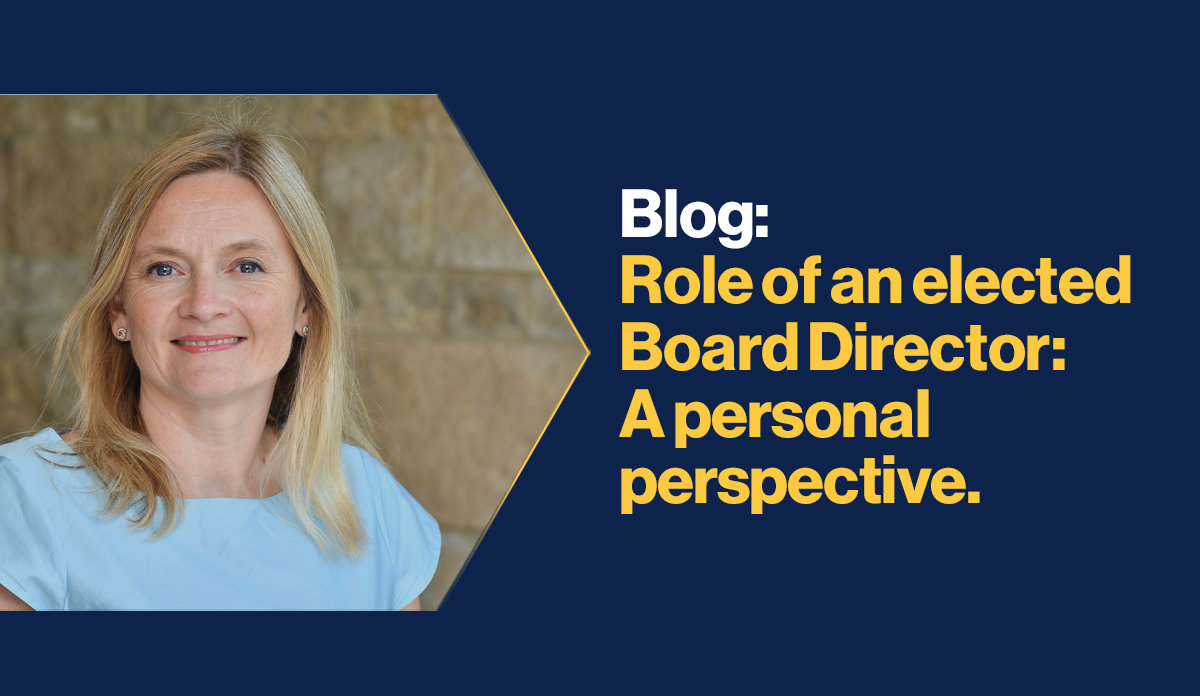Role of an elected board director: a personal perspective

This year two seats will be open for election on the BCI Board. When I joined the board a couple of years ago I had been fortunate to meet several of the board directors at BCI volunteer events and at the World Conference, but I didn’t know any of them well, didn’t feel comfortable asking questions regarding my unknowns, and didn’t have as clear a picture as I would like regarding the role of a BCI board director. This blog, along with Luke Bird’s vlog and changes to the election process will hopefully go a good way to resolving this challenge.
What was my path to the global board?
My career in business continuity started in the UK when an opportunity arose to take a new career path at Bank of America. I soon started Executive MBA studies at Imperial College London, took-up the challenge of a client-facing role at KPMG and then Deloitte, and then switch my path again to focus on the internal security and resilience at Deloitte as I started to juggle life as a parent as well as life as a resilience professional. I attended some industry conferences while living in the UK, spoke at a BCI World Conference, contributed to market-wide exercises etc, but never felt drawn to get more actively involved.
In 2015 I moved to North Carolina in the US to assume an exciting new career opportunity with the Deloitte Global Security Office. It soon dawned on me that I had no contacts in the industry in the US, and I knew that I needed to change that. I got in touch with the BCI to explore opportunities and was advised to consider self-nominating for the BCI USA Chapter board.
Did I think that I would be successful in my nomination for the USA Chapter board? No. But I was, and little did I know what it would bring my way! I served on the USA Chapter board for approx. three years, and then put my name forward for the global board. My first attempt to join the board was unsuccessful, but when a second seat became available for election I decided to give it another go, and succeeded in being elected.
What is the role of an elected board director?
The board is responsible for setting the strategic direction of the BCI, providing oversight of business planning, priorities and budgets, and acting in the best interests of BCI Members. The board also provides oversight and support to specific BCI strategic projects. It is not the role of the board to facilitate day-to-day operations, this is entrusted to the central office team.
It took me some time to get to grips with my role on the board, but once I did I stepped-up my involvement, am an active voice in board discussions, and have contributed to a number of initiatives including:
- Review and evolution of strategic planning
- Being an active member of the Finance Audit and Risk Committee (FARCom); reviewing financial planning and accounts, annual statutory reporting and the risk register
- Nominated board member working with central office on the evolution of the competency framework
- Nominated board member proposing reform to our communications to make the role of the board directors clearer, and to promote consistency in access to the board for all nominees
- Nominated board member working with Women in Resilience to ensure swift launch of the group
- Regular participant in board meetings, both in-person and virtual
- Facilitator and presenter at various BCI events including the World Conference and BCI Americas Awards
All those eligible to self-nominate for the board are seasoned business continuity professionals. But the role isn’t to direct the evolution of business continuity planning for the BCI, it is to steer the much broader strategic direction of the institute, to drive financial health, and to guide in the evolution of the institute. Values such as integrity and professionalism are a must, and comfort and experience with strategic planning, financial forecasting and accounts, team leadership and governance are highly desired.
Has the role aligned to my expectations?
The role of the board has aligned to my expectations. I completed my MBA specializing in entrepreneurship and business planning, and I have enjoyed being able to leverage some of the skills and knowledge I gained during my studies that I don’t ordinarily get a chance to explore in my day-job.
The time commitment is more than I expected. This is for a number of reasons, but COVID-19 has certainly sideswiped the regular drumbeat of meetings over the past 6 months. Both FARCom and the board have been meeting monthly to ensure that we are reviewing, responding to and evolving to thrive in challenging times. Time zones are challenging with the current board composition, so 4:30am and 5:30am starts have become the norm to attend calls! This has been difficult, as my work has been extremely busy with pandemic requirements too, and the additional challenge of being full-time parent and home-school teacher for periods has at times been overwhelming. But this is an unprecedented time, my fellow board members and central office are all supportive in sharing the load and keeping each of our workloads manageable, and whilst they have been challenging times I feel rewarded through being able to contribute and make a difference.
I enjoy my role on the board. I value being a voice for the wider membership, having a voice that is listened to when strategic decisions are being made, and having influence in the direction that the BCI and the wider industry is taking. The professional and personal relationships I have built during my time both as a BCI USA Chapter and Global board member are invaluable and have presented me with many opportunities. They have provided me with a trusted network of resilience professionals that I can pick-up the phone to if I need help or guidance.
Would I recommend that you consider being a board member?
Yes. If you are the type of person that thrives on making an impact, wants to be the change rather that talk about change, and has a passion for advancing our industry then please do consider self-nomination. Board membership requires a significant commitment, but it can be extremely rewarding too.


